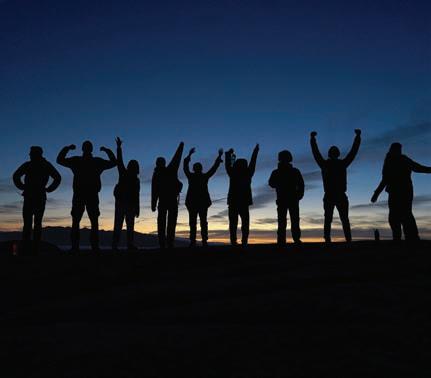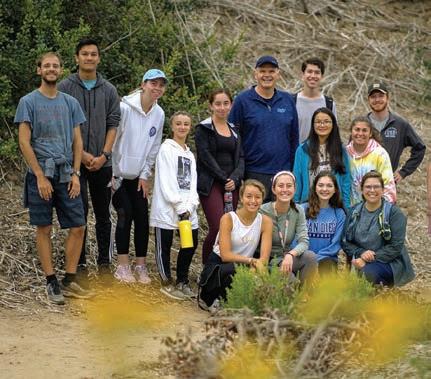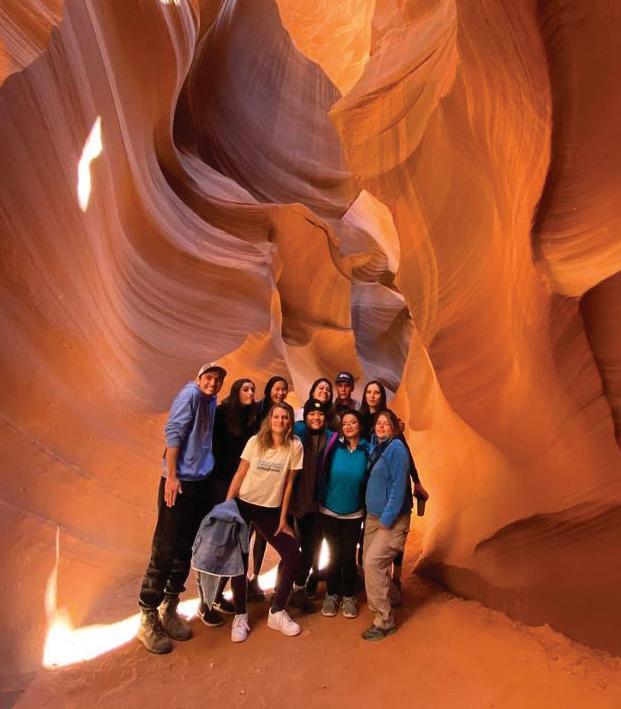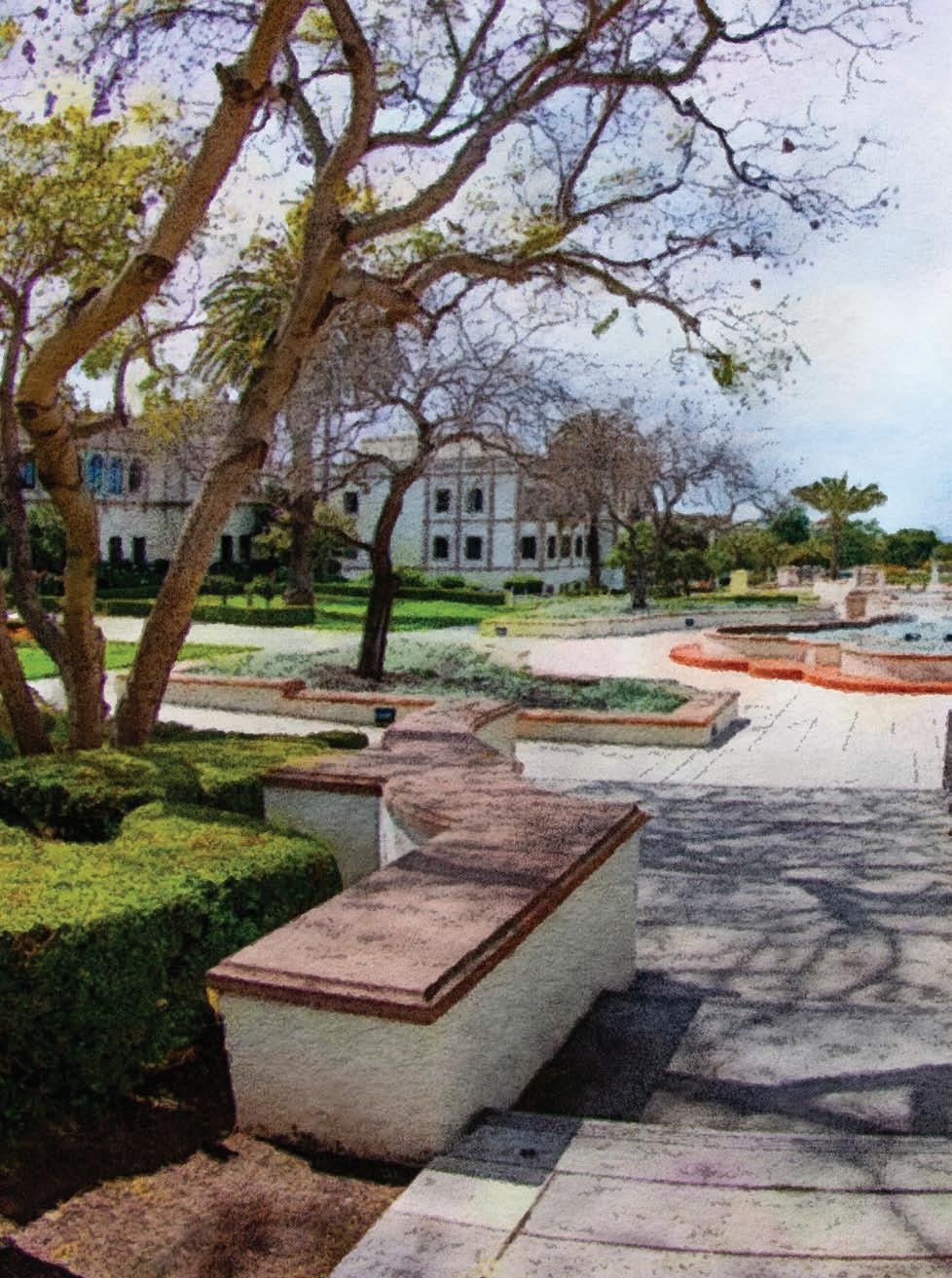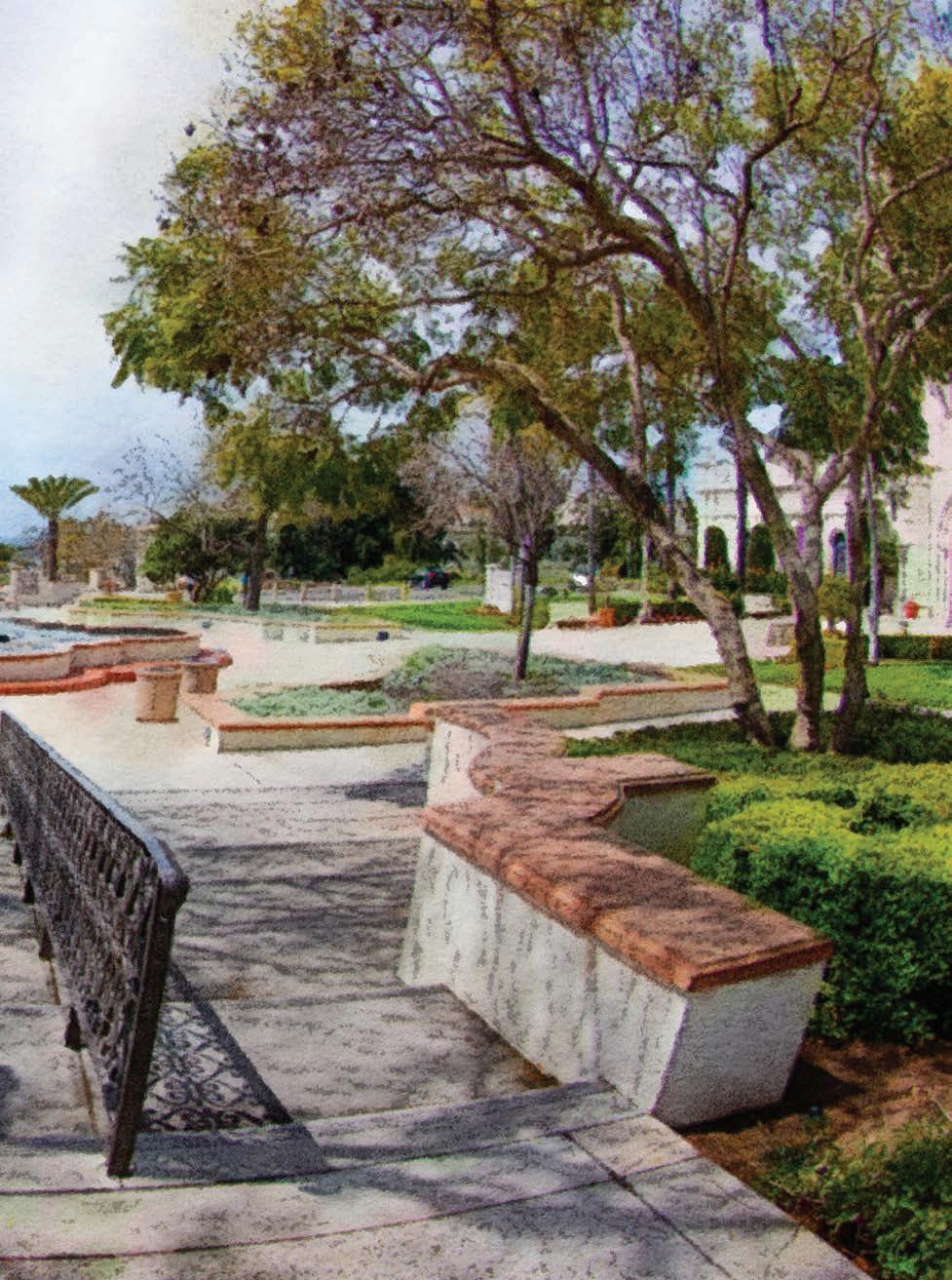2022 STUDENT AFFAIRS ANNUAL REPORT








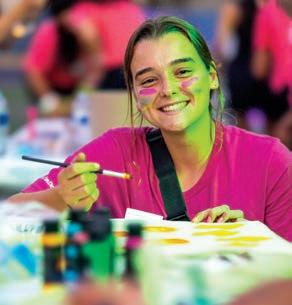


















The Student Affairs team is proud to present the Student Affairs Annual Report for the 2021-22 academic year. The year was intense! I began as the new Vice President for Student Affairs just as we were returning to in-person learning and amidst the many twists and turns of the COVID-19 virus. Despite the tumult, and because the community pulled together, we successfully reopened campus and began to define the “new normal” and its implications for our students and their USD experience.
Keeping students at the center, we begin to collectively think about what it means for students to thrive at a Catholic liberal arts university which seeks to develop students holistically—in and out of the classroom. Out of these conversations, the Thriving Student Model emerged as the new framework for our support of student development, post-pandemic, within the context of a university community that anchors itself within a Culture of Care.
Although we are still working on its development and will spend a good portion of the upcoming year vetting the model across the USD community, we chose to highlight the Thriving Student Model in this report because the model embraces so much of our work this past year, will guide our future work and serves as the perfect vehicle for highlighting some of the many extraordinarily talented students at USD.
We look forward to engaging the community on the many ways we can facilitate and measure student thriving. We are all in this together!
With warmest regards,
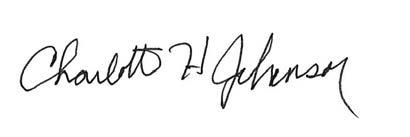 Charlotte H. Johnson, JD Vice President for Student Affairs
Charlotte H. Johnson, JD Vice President for Student Affairs
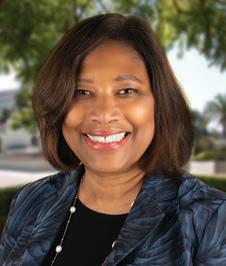
Definition of thrive
to grow vigorously :
The Thriving Student Model is anchored in inclusive excellence and seeks to ensure that our work to support students’ flourishing engages and impacts students across the spectrums of identities and experiences. The model also seeks to distinguish the USD student experience within higher education, as well as underscore the importance of a holistic student experience grounded in the liberal arts.
The Thriving Student Model is an impact model whose success is measured by intended learning outcomes and objectives, and whether they are achieved for ALL students.
The new mo del includes six different domains that represent various aspects of the student experience that we strive to affect and support through our work. Student Affairs team members
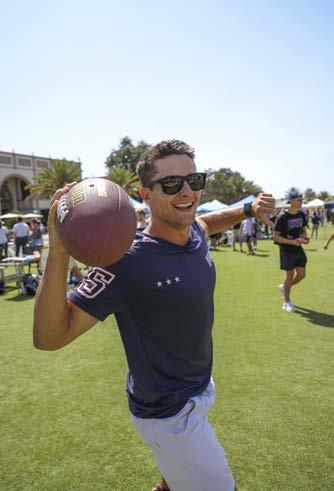

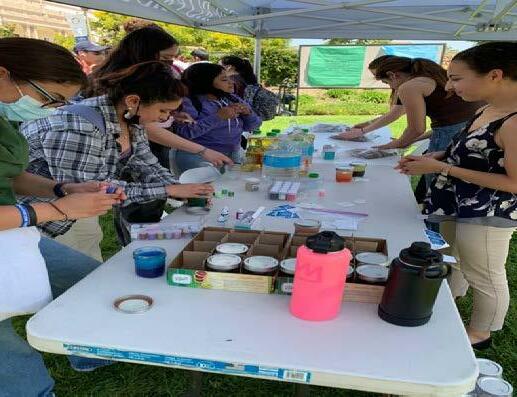

developed definitions for each of these domains over the course of the last academic year using rele vant research. The definitions will continue to be refined with input from USD community members.
The followin g sections of this report highlight some of the signature programs and initiatives from Student Affairs that have, so far, helped support the goals of the Thriving Student Model.
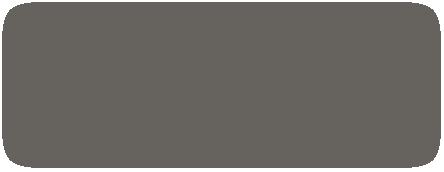
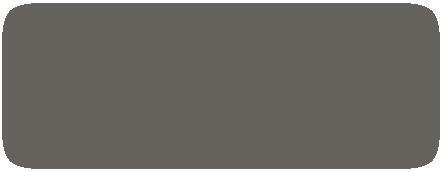
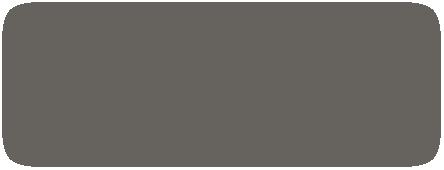
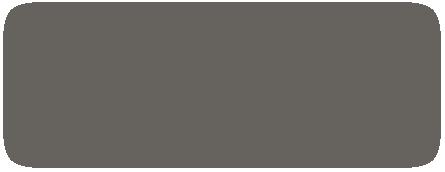
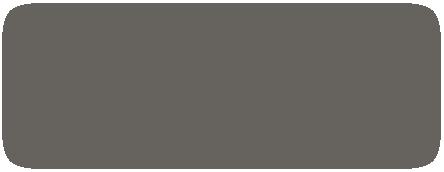
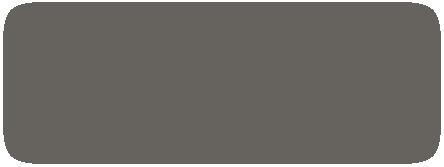
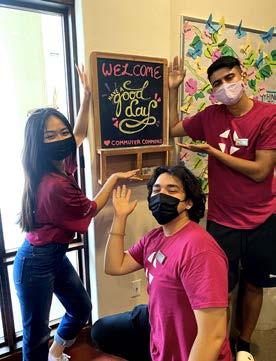
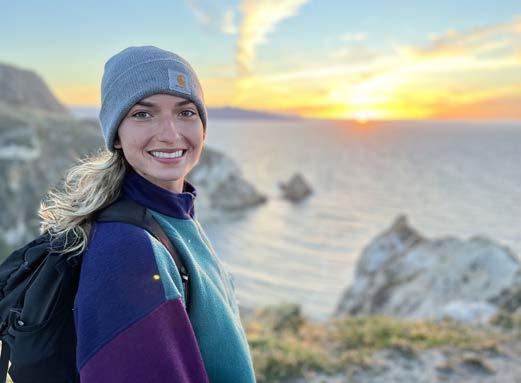
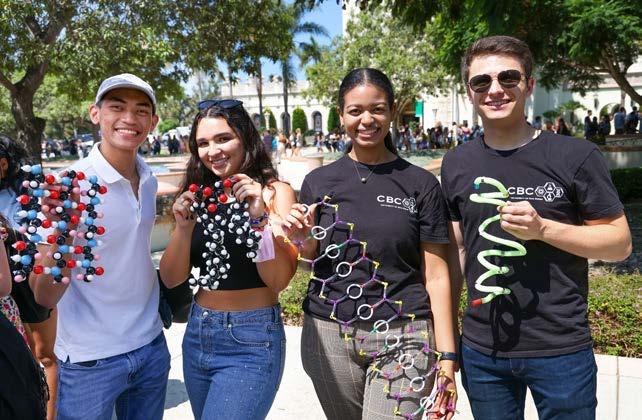
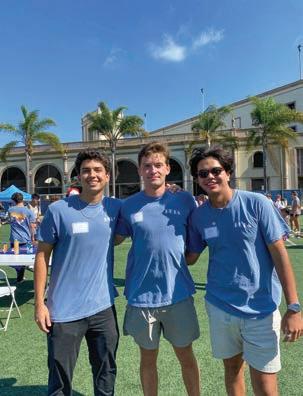









Victoria worked as a Commuter Assistant and received a Bachelor of Arts in Behavioral Neuroscience with a minor in Biomedical Ethics.
Belonging refers to a student’s perceived experience of mattering or feeling cared about, accepted, respected, valued by, and important to a group. It is an individual experience that varies based on an individual’s own perception. Belonging validates one’s own personal belief that one’s presence and contributions within Campus, Academic and Social Communities demonstrate one’s value and acceptance.
Belonging to me is particularly important because this university that we devote our time and studies to helps foster a community for us so that we can grow even more than just academically. The commuter community at USD is so diverse and welcoming, a space where I’ve found love and support. Advocating for my community and helping them grow has been super important so that this community can continue to grow and support many more students to come.”
- Vic toria Nguyen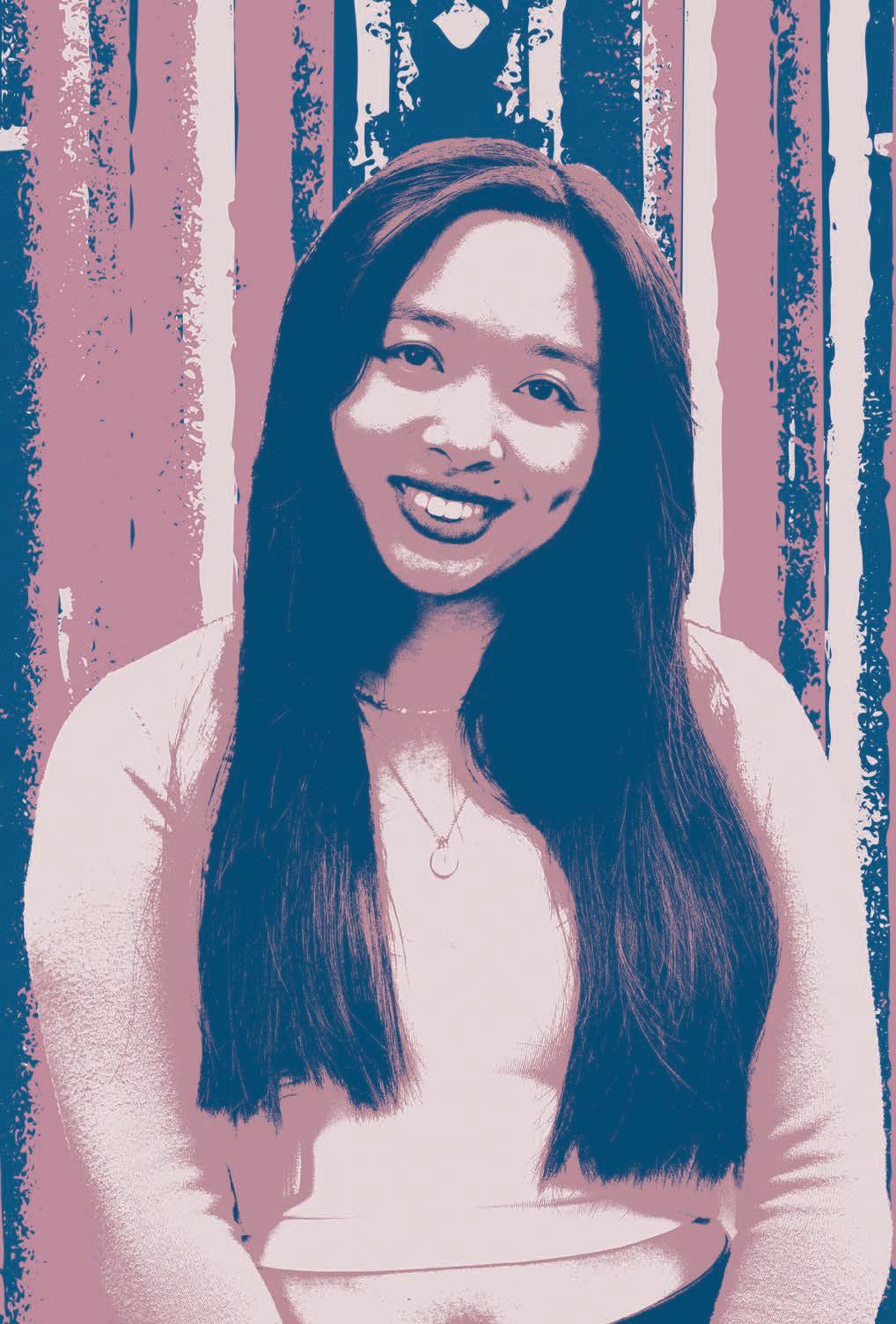
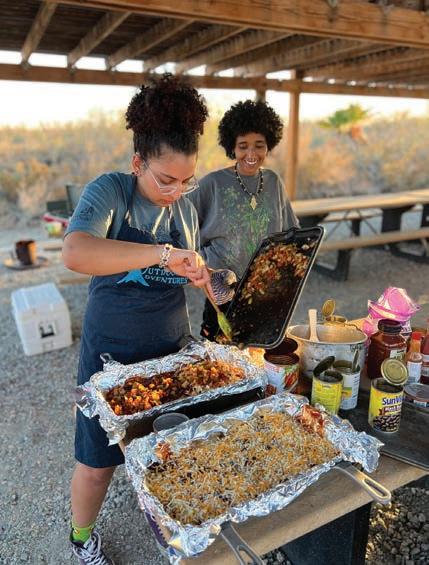
The Black Summer Immersion Program (BSIP) is a new initiative created to help ensure Black students feel a sense of ownership at USD. The program seeks to ensure students are connected to the infor mation pipeline in ways that facili tate success in navigating USD, building community and discovering San Diego. This initiative supports
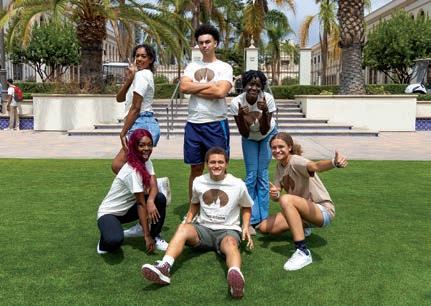
ponents of student satisfaction. Black students in the program are able to acclimate to USD by moving in early. They develop more interconnect ed relationships with each other, their immersion leader (an upper division
the transitory needs of incoming Black students with a keen focus on the strategies that will help all stu dents thrive. Students learn about success strategies, engage with com munity members, and increase their overall sense of belonging; key com
100% - Students felt the BSIP made it easier to meet and engage with peers.
student), faculty and administrators through a week of interactive programs, reflective discussions, and group outings. Each day is designed around specific themes: The USD Classroom Experience, Deep Conversations, Network Building and Self-Care.
Commuter students at USD are supported by Community and Leadership Development (CLD) and undergraduate student Commuter Assistants (CAs). Together, they strive to create a healthy, safe and thriving environment where commuter stu dents develop an individual sense of belonging while they navigate USD and unlock their interpersonal and academic potential. This year, CAs worked with their students to develop
“The Black Student Immersion Program has been one of the best decisions I’ve made. I was able to connect with my peers, as well as Black faculty that are more than happy to help and connect to the students. I am familiar with the campus, and excited to continue my social and academic journey at USD!”
academic and social networks at USD. This happened through midterm checks, weekly newsletters, promoting campus resources, oneon-one social interactions and pro gramming events called Commuter Connections. The events emphasized educational and social engagement, while also encouraging the explora tion of identity development.
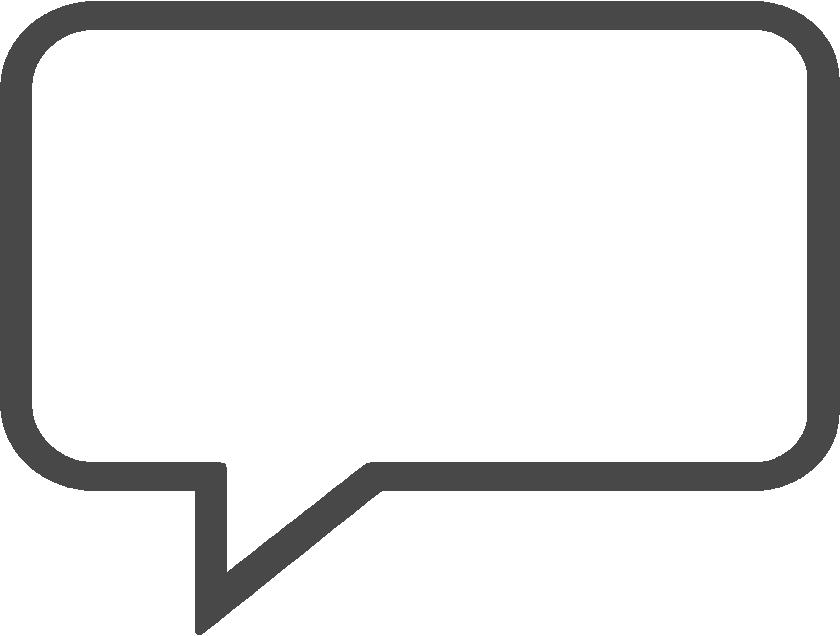
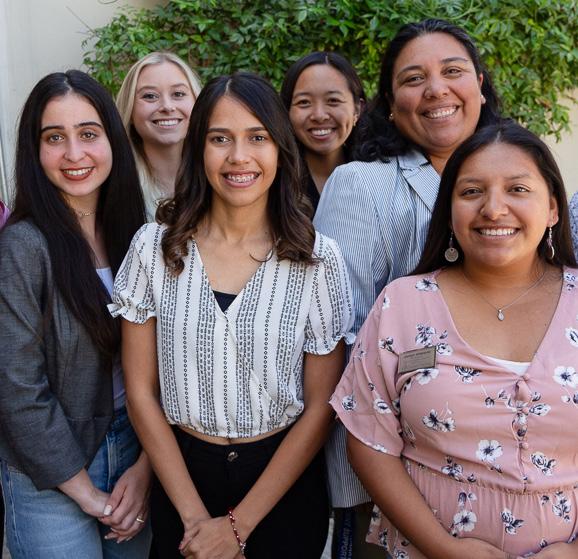
SUPPORTED THE FOLLOWING: 87 first-year traditional students.
75 second-year traditional students.
More than 200 transfer students.
A commuter student is defined as someone who does not reside in university housing.
Kobe is majoring in Psychology and minoring in Communica tion Studies. He plans to attend graduate school for a PhD in Clinical Psychology and work with children and adolescents.
Inclusive Community is an environment of people, places and things. It exists as an active and constantly evolving space, committed to including all people. An inclusive community is proactively designed to acknowledge the experiences, attributes, and strengths of its members. It works collectively to address, rethink and redesign systems and structures of inequality. It celebrates and recognizes difference, valuing the strength that difference brings to a community.
With our school being a little smaller, it allows us to get to know each other and create a tight-knit community. I have loved getting to meet other students in my classes and then seeing them around campus. It is nice to be able to say hi or smile at someone when I am walking on campus. I also think it is meaningful to engage with other students so that we can learn from each other and see if there are any concerns or issues that we can work on as a student body.”
— Kobe Huynh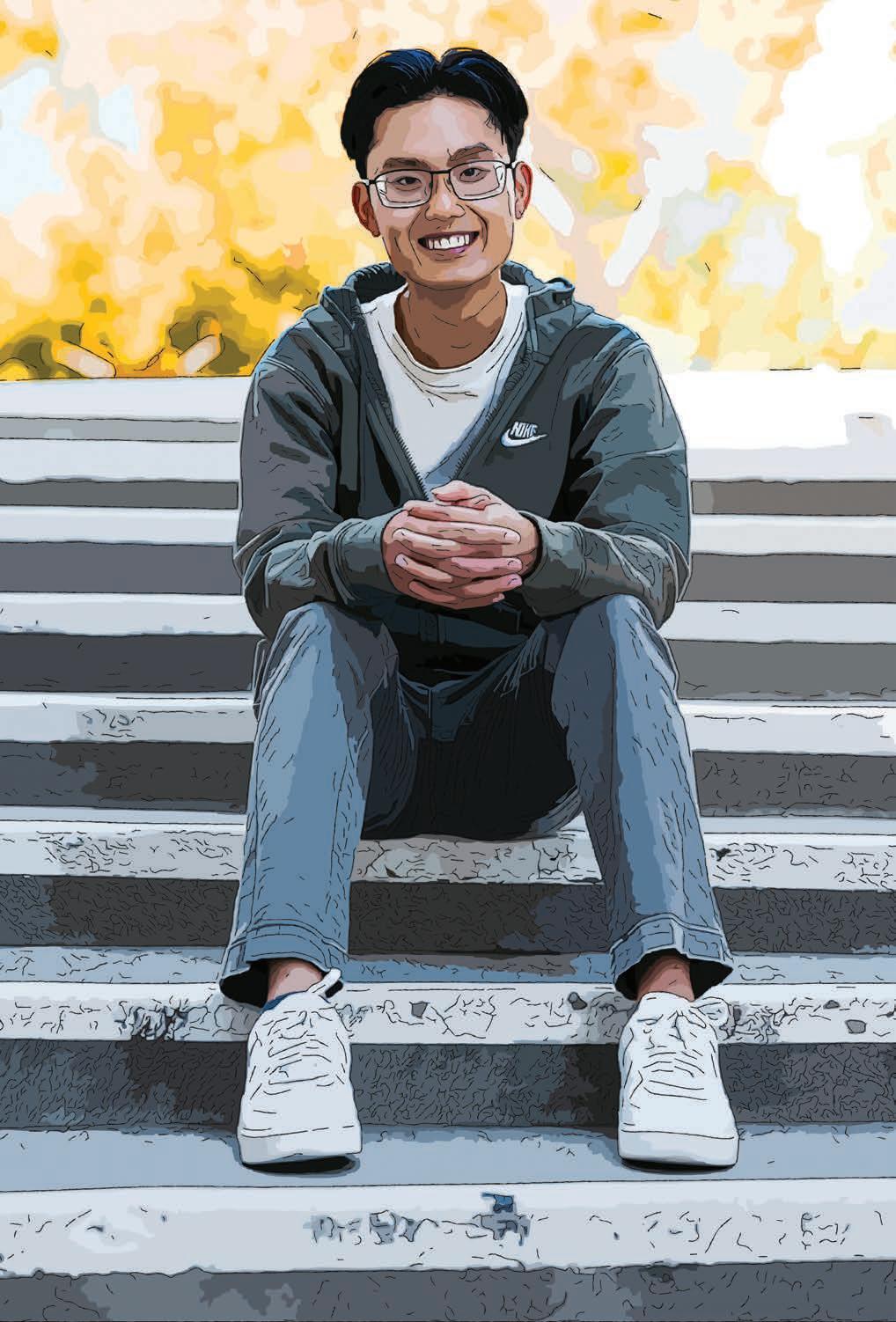
student leaders. Torero Circles are small group conversations of no more than 10 students that are grounded in restorative justice practices. They set the tone for authentic dialogue about difference and well-being, while also helping students start to build new relationships within their community.
95% of students agreed that “USD feels like a friendly place” after their Torero Circle. 95% of students could identify resources to help with their transition to USD after attending Spring Orientation.
is committed to creating an inclusive community with students before they even set foot on campus. The student on boarding process is multi-faceted and designed for different modes of learning in order to appeal to students’ personal preferences. Using the Torero Ambas sador Network (TAN) as a platform, students completed online modules and were able to join with a small group of peers in their Living Learning Communities to develop connections, ex plore well-being, and create a sense of belonging. They also participated in a series of Torero Circles that were facili tated by a team of 203 employees and
129 Torero Circles Facilitated (115 before the fall 2021 semester and 14 before the spring 2022 semester).
s Graduate and Law Students continue on their educational path, they often confront continu ing and unique challenges that remain after completing their undergraduate degrees. The Office of Graduate Student Life hosts multidimensional interactive dialogue series designed to empower Graduate and Law students to explore themes unique to them and identify tools to improve their experi ence. These dialogue series proactively engage students and invite them to explore themes related to their holistic experience (mind, body and soul), enhance the sense of belonging, support our inclusive community and overall success of a diverse and growing Graduate and Law student population at USD. Students dive into a deep exploration of their intersecting identi ties, mental health and well-being, and spiritual and religious life. These month ly series include the First-Generation Gathering & Dialogue, Theology on Tap
and Black Grads Matter. Collaborators are strategically selected and have included the First-Generation Action Team, the Black Student Resource Commons, University Ministry, Wom en’s Commons, the Center for Restor ative Justice and the Center for Health and Wellness Promotion. The facilita tion format included guest speakers, student panels and workshops.
Number of students that took the Graduate and Law Student Experience Survey.
This year the First-Generation Action Team held the third annual FirstGeneration Student Success Sum mit for the USD campus community titled “Enhancing a Sense of Belonging for USD’s First-Generation Students: Practical Strategies for Faculty and Staff.” The summit was scaffolded to include quantitative data and analysis of USD’s First-Generation enrollment patterns and key demographics of the various intersecting identities followed by findings from qualitative research to inform the understanding of the FirstGeneration student experiences on our
campus. After setting this foundation, key strategies to support First-Genera tion students were highlighted specific to the work of faculty and staff. Firstgeneration undergraduate and graduate students were invited to speak on a panel addressing their unique challenges and successes. Faculty who identify as First-Gen and faculty who support FirstGen students were also invited to give advice on best approaches for engaging this population. The summit concluded with a design thinking session for participants to draft specific takeaways they could incorporate into their roles and responsibilities. Educating the campus community about our first-generation students supports the efforts of being an inclusive community where students feel seen, heard and understood.
100% of attendees agreed that “Attending the FirstGen Summit helped me to understand the first-genera tion student identity and the strengths and challenges students face.”

Diana earned her MA in Higher Education Leadership from the School of Leadership and Education Sciences (SOLES).
She hopes to work in international higher education.
Students are supported across a wide range of intercon nected wellness dimensions in order to thrive. This takes into consideration the whole person and areas of emotional, financial, social, physical, spiritual, intellectual, occu pational and environmental health. It is the campus com munity’s responsibility to collaborate on supporting the various dimensions of wellness and to help facilitate indi vidual student growth and success. This is achieved through collaboration and an emphasis on preventative education.
For me, holistic wellness is taking care of myself in all aspects of who I am. That is through mind, body, spirit, soul, etc. If one is off, then everything else is off. . . . I celebrate all the resources and opportunities given to students on campus, and I often encourage others to get engaged. I have offered to walk with others to the counseling center if that was the support they needed. I always tell everyone that they know themselves best and what they need.”
— Diana BuDoff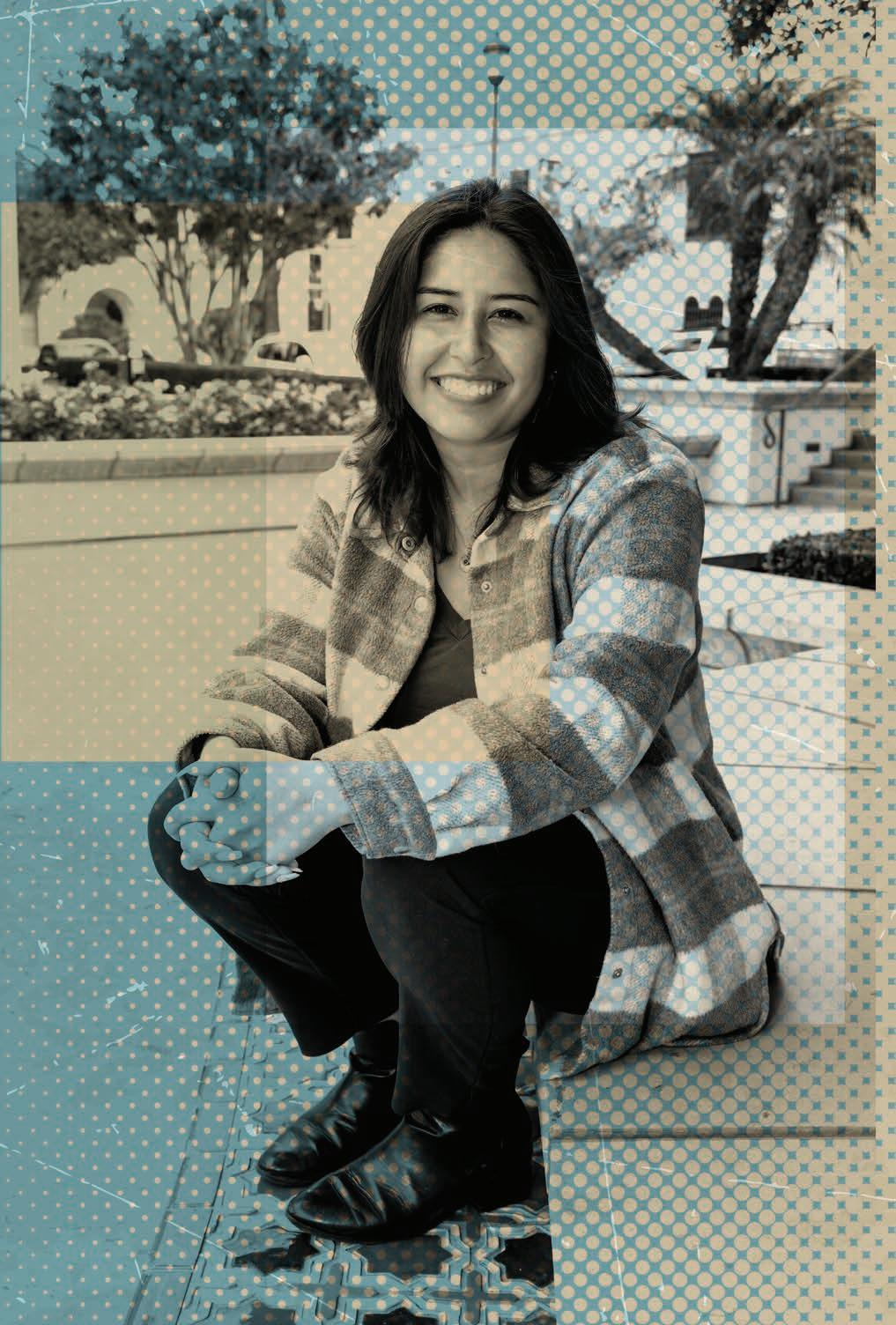


As part of USD’s ongoing efforts to prioritize the health and well-being of the campus com munity, students now have free and immediate access to medical and mental health support through TimelyCare. Launched on campus this year, TimelyCare offers students a 24/7 extension of campus health and counseling center resources that is easy to use. Through the TimelyCare app on their phone or another device, students can select from a menu of virtual care options offered by diverse licensed physicians and counselors in all 50 states – at no cost to them and without the hassle of traditional insurance. Services include ondemand medical care, appoint ment-based medical care, on-
demand mental health support (TalkNow), and appointment-based mental health counseling. This service provides a reliable alternative for USD students if their schedules do not allow for an on-campus appointment at the USD Health Center or Counseling Center.


PROGRAM STATS:
Students’ average satisfaction rating for their TimelyCare provider was 4.9 out of 5.0.
Typical consultations began within 5-10 minutes – less than the amount of time it takes to walk across campus.
USD Students had 475 TimelyCare consultation appointments in spring 2022.
1,119 numb er of unique students that utilized Mental Health and Behavioral Health at the Counseling Center in fall 2021.
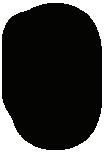
920 number of unique students that utilized Mental Health and Behavioral Health at the Counseling Center in spring 2022.
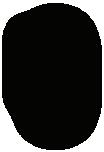
Recognizing the many challenges that our students navigated prior to their return to campus and the well-being related impacts of these experiences, our campus community partnered to plan the “Cultivating Wellness Fair” as an engaging way for students to learn more about support ing their well-being at USD. The fair featured several activities for students to engage in, including potting plants, pouring their own calming jars and building their own kinetic sand kits. Additionally, representatives from each of the many Student Wellness resource teams were present to share information about their services and ways in which students can seek support. Students were invited to visit all of the tables in order to walk away with the day’s most sought after give away: large paint by number kits.
295 unique students participated in fall 2021 recreation classes.
418 unique students participated in spring 2022 recreation classes.
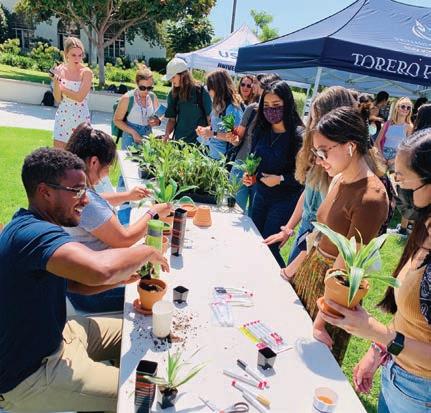
799 unique students participated in fall 2021 intramurals.
769 unique students participated in spring 2022 intramurals.
537 unique students participated in fall 2021 sport clubs.
Faith is studying Industrial and Systems Engineering with a Sustainability concentration and serves as president for the USD chapter of the National Society of Black Engineers.
Joy is an unexpected or intentional moment in time where one experiences emotions of elevated harmony, delight, balance, hope or happiness. Joy involves being present in the moment, generating renewal of oneself and community, and accessing agency to create change. Joy is a skill and capacity that can be cultivated and grown.
Being able to participate in USD intramural teams fostered much joy to my experience as a college student. I played volleyball in middle and high school so to be able to play in college at a level that is all about fun was extremely rewarding! My freshman year, I was captain of my intramural team. Every single game felt like a win because we were always the team having the most fun on the court despite it being a win or loss.”
— Faith Osei-Tutu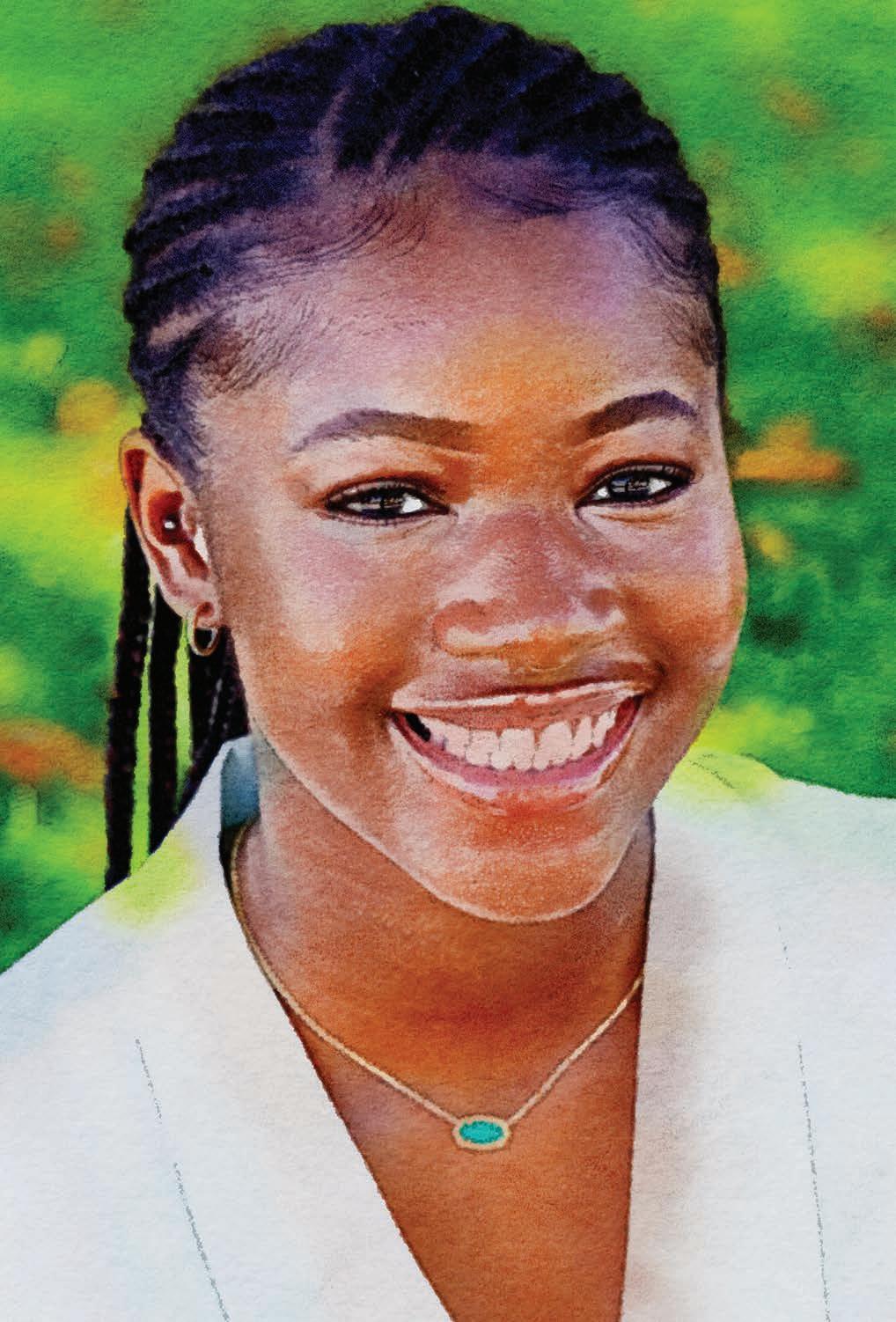
The Alcalá Bazaar is held at the start of each semester at USD and provides a space for students to discover the many opportunities for involvement that are available. Student organizations, university centers and departments, and local vendors come together to engage with students and share their positive experiences about getting connected. There's a place for everyone, including academic, multicultural, changemaker, athletic, spiritual, special interest, and fraternity and sororities. The Alcalá Bazaar provides an opportunity for all students to tap into joy at USD!
150 student organizations registered with Student Activities in 2021-22.
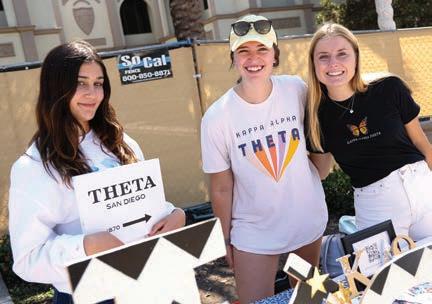
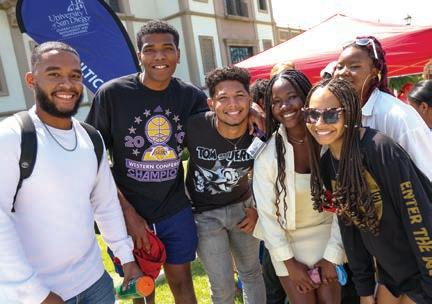
216 groups registered to table at the Fall Alcalá Bazaar.
3,201 – Number of undergraduates that joined at least 1 student organization.
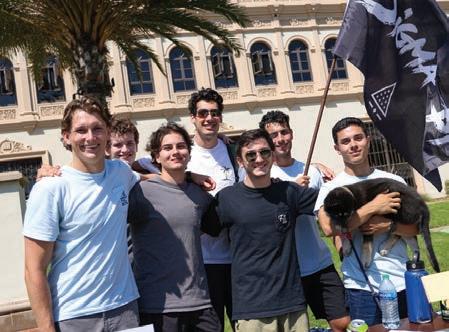
210 groups registered to table at the Spring Alcalá Bazaar.
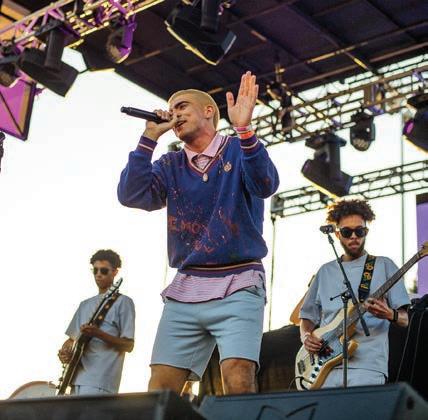
The Olé Music Festival in spring featured a concert with musical performers like student openers keni can fly, Latinx singer/songwriter Carmen Deleon, and nationally-recog nized Aminé. More than 2,000 people attended the event of music, food, fun activities and giveaways. Students built community with their peers and increased their Torero spirit. This on-campus event was free for all students and the USD community.
More than 2,000 attendees enjoyed the Olé Music Festival with music, food, fun activities and giveaways.
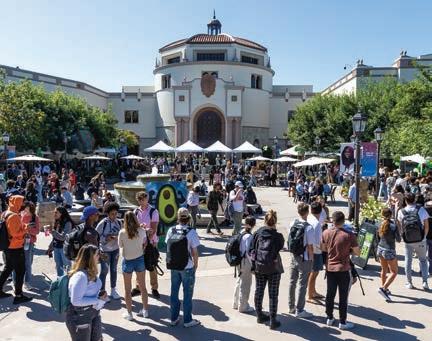
The fall Avocado Festival and spring Strawberry Festival give students the chance to sample fresh, healthy produce and themed dishes from a variety of local vendors and USD Dining. A live DJ plays while students enjoy the free food, engage with vendors and have a chance to connect with their peers in a fun environment. Students also participate in ‘cooking contests’ where they get to test their culinary skills by making guacamole and strawberry salsas, which then get judged by USD chefs.
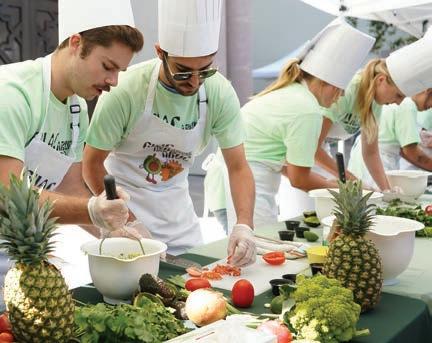
Lindsay worked as a Student Success Coach and earned a Bachelor of Arts in Psychology with a minor in Communication Studies.
Academically successful students are prepared to meet their academic, personal and professional goals by embodying USD’s core value of knowledge, satisfaction with their academic pursuits, persistence to graduation, and an integration of learning in the classroom and life beyond. This ethos enables students to have autonomy and agency in what academic success means for them, including a sense of self-efficacy.
I have fostered academic success at USD by forming a potential research proposal in my Clinical Capstone Psychology Class this semester. We performed all of the necessary steps to propose our research, write a research draft, and present our “study” to the rest of the class. It was so fascinating to be able to be on the other end as a writer and former of potential research rather than solely reading it for research projects.”
-Lindsay Royse
“
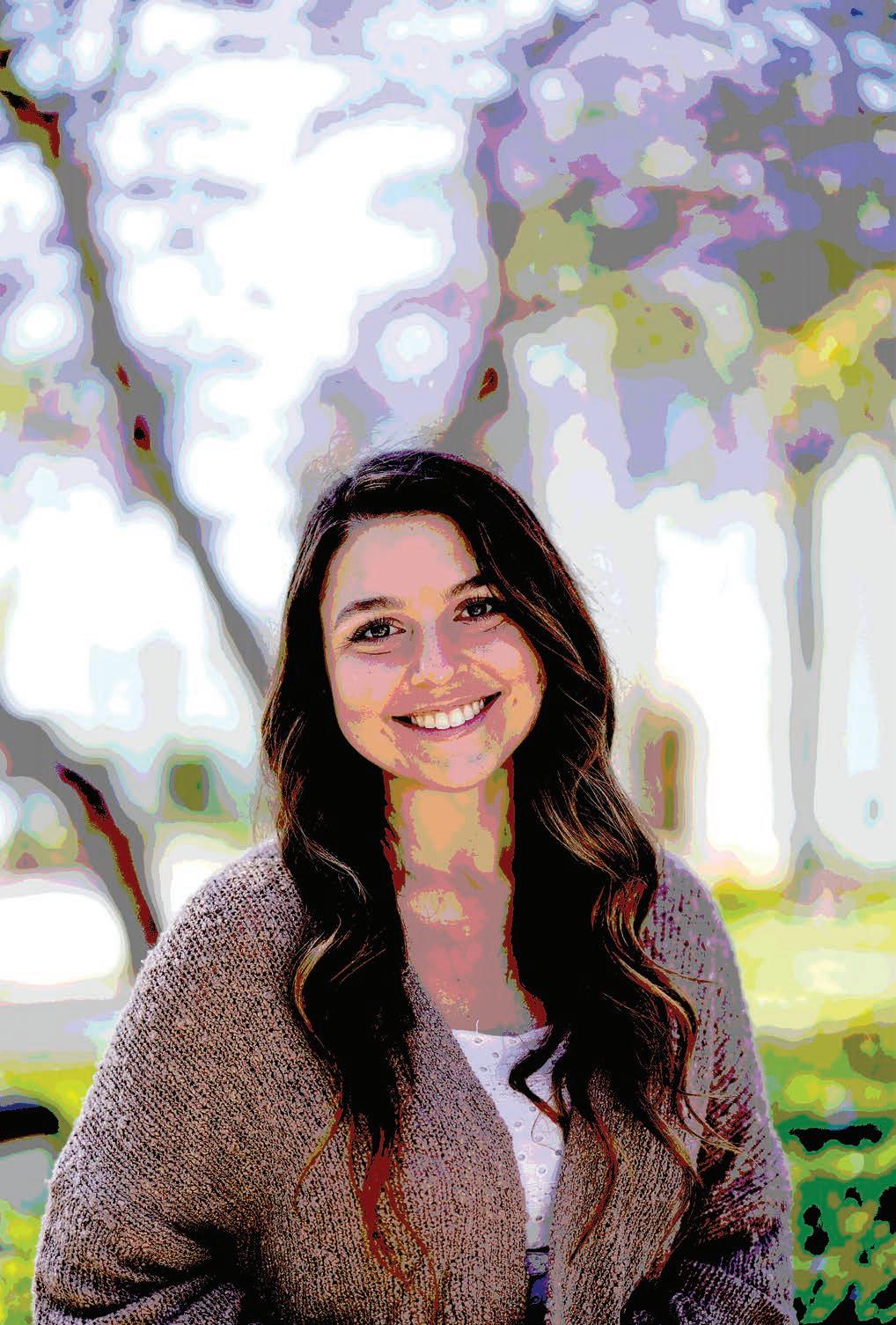

Student Success Coaching is a program that offers individualized peer support for students to foster an intentional approach to learning and studying as they strive toward academic success. While tutoring supports subject specific assistance, coaching helps students build and/or strengthen their skills as it relates to their overall approach to academic
“Thanks to my coach, we worked through the problems I had regarding time, stress, and personal obstacles and I have managed to turn the whole situation around being in a new environment, in person classes, away from home, etc. I have dedicated more of my time and energy to being the best student I can be at USD.”
Number of peer coaching sessions in 2021-22.
receive 2 units of practicum credits while serving as a coach and receive ongoing clinical supervision to mirror the clinical experiences of therapists. Many student success coaches go on to clinical experiences. The students that meet with a peer coach consistently report that they are better equipped to navigate academic challenges as a result of their sessions.
success. Students meet with a peer coach in a four-session model in which they share what they are working toward, identify specific goals and then discuss tips and strategies to achieve those goals. Skills and strategies can include time management, critical reading, study skills, note taking, transitioning, sense of belonging and more.
Students serving in the peer student success coach role complete a Marriage and Family Therapy course on peer mentoring skills prior to applying for the role. Student success coaches then
95% of students who completed coaching felt confident in their ability to manage similar challenges if presented with them again in the future.
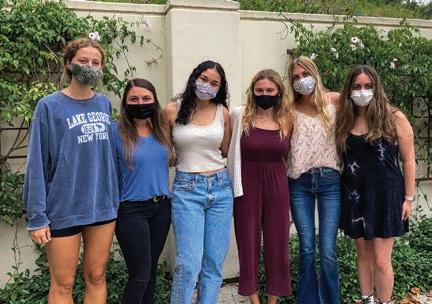
All new undergraduate students at USD participate in a learning community. They take classes together, share an experience where academics meld with co-curricular activities and community engage ment, and live near one another if they reside on campus. This eases the academic and social transition
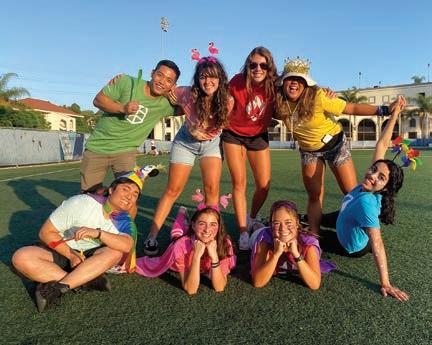

86% of students feel that their LLC faculty advisor cares about their success at USD.
80% of students felt Scholastic Assistant helped them with their transition to USD.
86% of students felt that Scholastic Assistant helped them identify campus resources.
to USD while expanding their intellectual curiosity beyond the class room, and helps to build a sense of community with faculty and fellow students. Participants learn to recog nize broad connections between different ways of problem solving and learn to articulate the benefits of using multiple perspectives to identify solutions to today’s urgent challenges. Upper division students work as Scholastic Assistants (SAs) or Transfer Scholastic Assistants (TSAs) to support the learning com munities throughout the semester.
75 students worked as Scholastic Assistants or Transfer Scholastic Assistants to support the learning communities.
John earned a Bachelor of Arts in Biology with minors in Chemistry and in Women’s and Gender’s Studies.
Experiential learning is a dynamic process that holistically engages the student intellectually, emotionally, physically and spiritually. It is a conscious process involving student experience followed by critical reflection that enables students to shape perceptions of themselves and the world they encounter. At USD, experiential learning can happen anywhere and anytime. There are infinite opportunities for learning both inside and outside of the classroom.
Outdoor Adventures organized a five-day canoeing trip to the Colorado River where I was able to apply my classroom learnings. On the river, we learned a lot about the ecology of the landscape and the fight over water rights to the Colorado River. In my classes, we learned about the disappearing riparian habitat and the invasive vegetation along the river. The classroom learning I did became so much more impactful.”
— J ohn O’Connell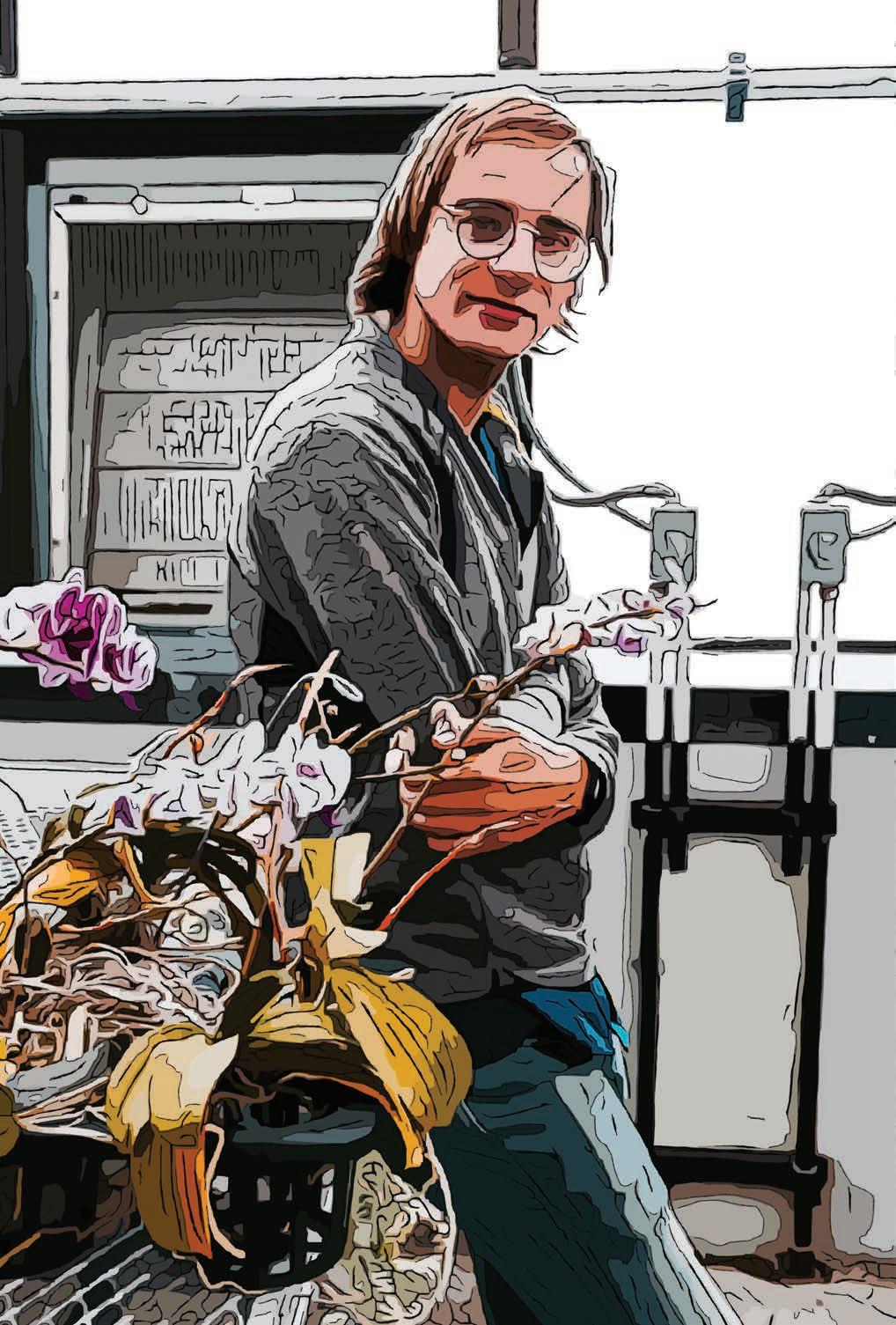
Many of the programs and support services offered to USD students can only achieve their intended goals with the help of highly trained student leaders. These students work in roles across the areas of Associated Student Government, Residential Life, Learning Communities, New Student Onboarding, and Community and Leadership Development.
“The ‘Behind Closed Doors’ training sessions where we role-played different scenarios was very important to giving me the confidence I need for difficult RA situations.”
50 200Number of student leaders that partici pated in Student Leader Conference.
Each year, the Student Leader Prepa ration and Development Committee designs a comprehensive weeklong conference of more than 30 individual sessions to begin training the lead ers on a variety of skills that apply to every role. The curriculum is built around the Co-Curricular Learning Outcomes (CCLOs), trauma in formed delivery, and a Diversity, Equity, Inclusion (DEI) framework. Subsequent training sessions are held within individual units to teach role specific responsibilities.
Staff and faculty led 31 sessions at the Student Leader Conference.
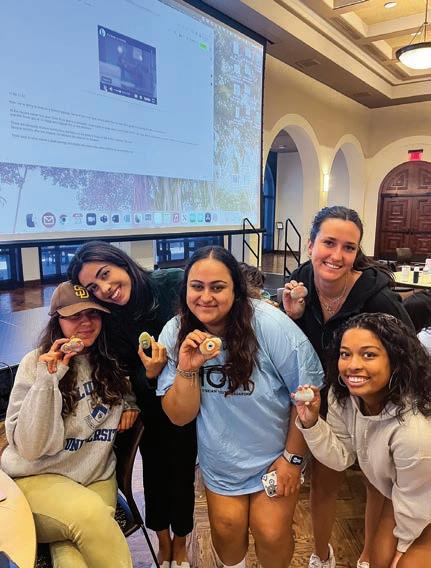
95% of student leaders recognized their role in contributing to the well-being of our community through healthy relationships.

Outdoor Adventures (OA) serves the USD community with opportunities to experience outdoor activities that are designed to promote personal growth, leadership development, rela tionship building and environmental responsibility. Each program is also designed with intentional learning outcomes that are measured for success and impact. Examples of programs from this past year include: a three-day Pre-Orientation Adventure camping trip to the Laguna Mountains to ease new students’ transition to college; overnight trips to Channel Islands National Park, the Chocolate Mountains and the Salton Sea; outdoor recreation classes; day trips like Bike Coronado, Moonlight Canoe with University Ministry and Hike Torrey Pines with the Honors Program.
Outdoor Adventures offered 40 trips that served more than 600 student participants.
